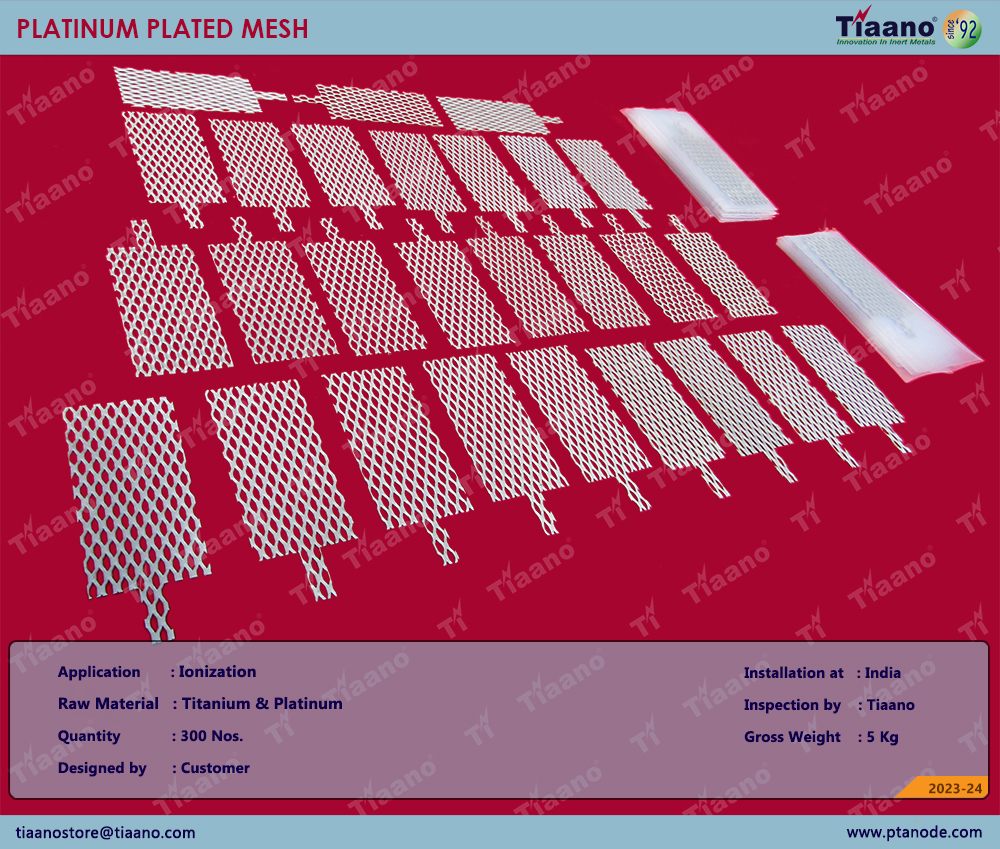PLATINUM PLATED TITANIUM MESH ANODE FOR IONIZATION
November 18, 2023 at 5:19 PM
—
Platinised
Platinum is often used as an anode material in various electrochemical processes, including ionization processes. The choice of platinum as an electrode material is primarily due to its favorable properties for electrochemical applications. Here are some reasons why platinum is commonly used as an Electrode:
Corrosion Resistance: Platinum is highly resistant to corrosion and tarnish, even in harsh chemical environments. This property is crucial for maintaining the stability and longevity of the anode in electrochemical cells.
Chemical Inertness: Platinum is chemically inert, meaning it does not easily react with other chemicals. This makes it suitable for use in a wide range of electrolytes without undergoing undesired reactions.
Catalytic Activity: Platinum exhibits catalytic activity, which can be beneficial in certain electrochemical reactions. This property can enhance the efficiency of ionization processes or other reactions occurring at the anode.
Stability at High Temperatures: Platinum has a high melting point and can withstand high temperatures, making it suitable for applications where elevated temperatures are involved.
Conductivity: Platinum is a good conductor of electricity, facilitating efficient electron transfer during electrochemical reactions.
In ionization processes, such as electrolysis or certain types of sensors, the anode plays a critical role in facilitating the flow of electrons and promoting the ionization of substances in the electrolyte. Platinum's properties make it a suitable choice for ensuring the stability, durability, and efficiency of the electrode in these processes.
